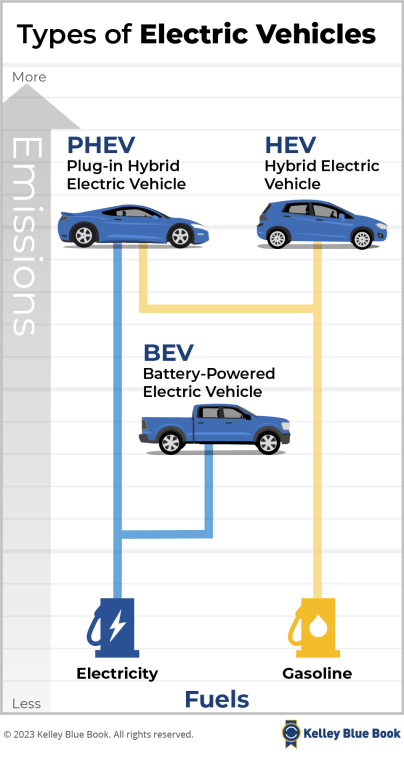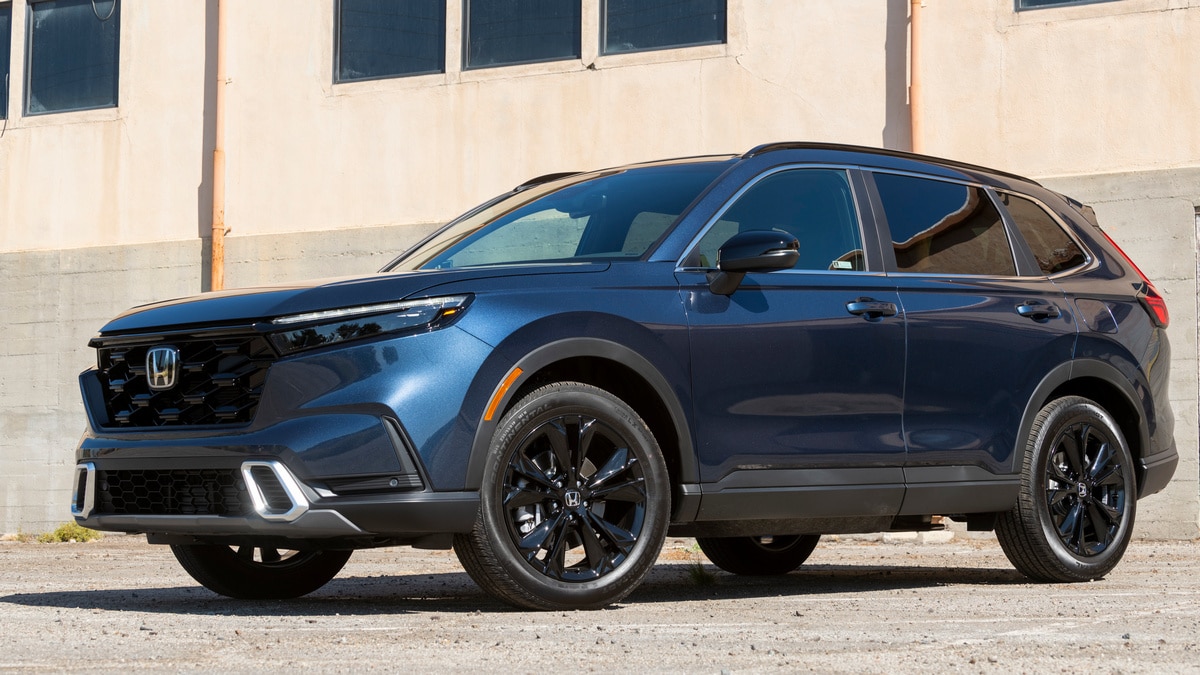If you’re considering alternative fuel vehicles, you likely have an overarching question: Is it better to buy a hybrid or an electric car?
Choosing the best option is your decision because everyone defines “better” differently, and each type of electrified vehicle (EV) has pros and cons. While we can’t decide if an electric car or hybrid is better for you, we can help by highlighting some fundamental points. Ultimately, your needs, limitations, and preferences will lead you to a smart choice that suits your situation.
Buying a Hybrid vs. Electric Car
Remember, these basic considerations are a starting point when deciding whether it’s better to buy a hybrid or electric car. Taking the middle road between EV vs. hybrid with a plug-in hybrid (PHEV) might be the best option for some drivers.
- An all-electric car will cost more upfront compared to a similar-style hybrid. Kelley Blue Book research shows EV buyers spent an average of $50,798 on fully electric models in December 2023. For comparison, prices for the 2024 Toyota Prius hybrid start at $28,745, including the $1,095 destination charge.
- Some EVs are eligible for federal tax incentives of up to $7,500.
- Without gas engines, EVs don’t need oil changes, and overall maintenance costs are less than a hybrid. According to Kelley Blue Book data, an oil change at a dealership service center costs $115 or more.
- Hybrids provide remarkable fuel efficiency, but they still create tailpipe emissions. Electric cars don’t have gas engines, and driving them doesn’t contribute to smog.
- Hybrid drivers fill their tanks at gas stations, while many EV owners recharge their cars while parked overnight at home.
- Hybrid cars have more frequent opportunities to refuel. While there are more than 61,000 public charging stations across the United States, recharging an EV may be inconvenient when away from home.
- Annual fuel costs for a hybrid are typically higher than annual costs for charging an electric car. However, lower gasoline prices narrow that gap.
- Hybrids can travel hundreds of miles without refueling, but a 300-mile range on an EV is often considered exceptional.
- Plug-in hybrids use battery power for shorter trips (over 40 miles for some models) before the gasoline engine takes over. PHEVs cost more than their gas counterparts, but many are eligible for tax rebates.
Read Related Articles:
Editor’s Note: This article has been updated since its initial publication.





